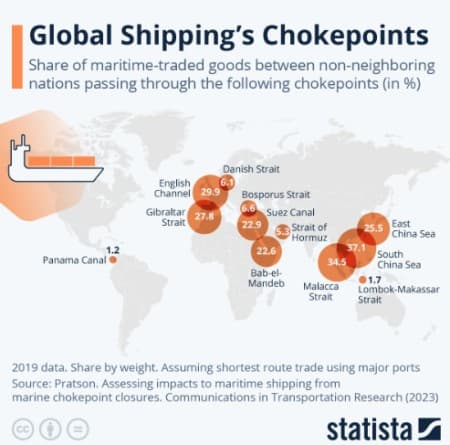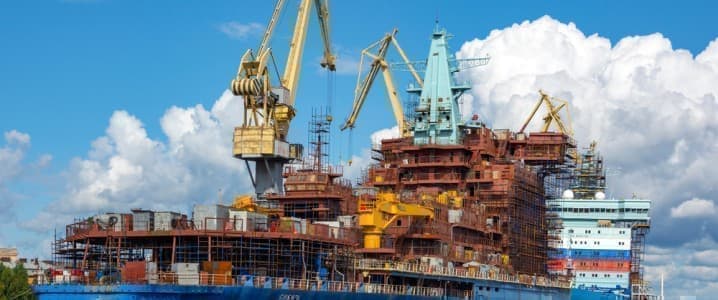With more and more shipping companies extending full or partial closures of Red Sea shipping routes due to attacks by Yemeni rebels, global trade could be seriously affected.
As Statista's Katharina Buchholz details below, according to a new analysis based on 2019 data published in academic journal Communications in Transportation Research, 22-23 percent of maritime-traded goods between non-neighboring countries pass through the Red Sea, more specifically its chokepoints Bab-el-Mandeb and the Suez Canal.
Other estimates even put the share of seaborne cargo passing through the area as high as 30 percent.

You will find more infographics at Statista
The passage is also an important chokepoint for oil shipments - not as significant as the Straight of Hormuz or the Straight of Malacca - but still important.
As a result of the situation, the global oil price has already shown volatility.
The Red Sea is also an important transit point for global food and fertilizer shipments, a type of commodity trade already thrown into disarray by the war in Ukraine as well as subsequent blockades of Black Sea shipping routes.
According to Chatham House, Bab-el-Mandeb saw the transit of almost 20 percent of global rice and almost 15 percent of global wheat exports previous to the pandemic and the Ukraine crisis. It is also important for fertilizer shipments.
The biggest chokepoints of global trade (by weight) are centered around China due to the country's export prowess.
An estimated 80 percent of goods traded globally are transported via sea routes.
Calculating by value instead of weight, this number is still 70 percent.
By Zerohedge.com
More Top Reads From Oilprice.com:
- Biden Administration Tightens EV Tax Credit Rules
- Goldman: Oil Prices Could Double if Houthi Attacks Continue
- New Discovery Overcomes Major Hurdle in Hydrogen Energy Economy


















